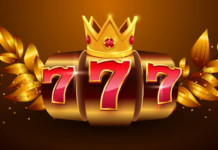Introduction
For centuries, traditional healing practices have been utilized by various cultures around the world to address physical, mental, and spiritual ailments. Ibhoma, an indigenous healing tradition originating from the Zulu culture in Southern Africa, is gaining recognition for its holistic approach to wellness. This comprehensive guide will delve into the origins, principles, practices, and benefits of Ibhomawith a particular focus on how individuals can incorporate this ancient healing modality into their modern lives.
Origins of Ibhoma
Ibhoma, also known as Ubungoma or African traditional healing, has its roots in the Zulu culture of Southern Africa. It is a practice that centers around the healer, known as a Sangoma, who is believed to have been called to the vocation through a spiritual awakening or illness. Sangomas play a crucial role in their communities, acting as intermediaries between the physical and spiritual realms to promote healing and balance. They work with various tools such as herbs, bones, crystals, and the elements to diagnose and treat illnesses, provide spiritual guidance, and maintain harmony within the community.
Principles of Ibhoma
Central to the practice of Ibhoma are the principles of interconnectedness, balance, and the importance of ancestral wisdom. Sangomas understand that individuals are connected to their ancestors, the natural world, and the divine. By honoring these connections and maintaining balance within oneself and the community, healing can occur on multiple levels – physical, emotional, mental, and spiritual. Sangomas receive guidance and knowledge from their ancestors, who are seen as sources of wisdom and healing energy.
Practices of Ibhoma
The practices of Ibhoma are diverse and may vary among different Sangomas. However, there are some common elements that are often present in Ibhomasessions:
1. Bone Throwing: Sangomas use bones or other objects to communicate with the spiritual realm and receive messages from ancestors.
2. Herbal Medicine: Utilizing the healing properties of plants and herbs to address physical and spiritual ailments.
3. Divination: Sangomas may use methods such as throwing bones, reading patterns in nature, or trance states to gain insight into a person’s life path, challenges, and solutions.
4. Rituals and Ceremonies: Sangomas often perform rituals and ceremonies to honor their ancestors, seek guidance, and promote healing within the community.
5. Dream Interpretation: Dreams are seen as messages from the ancestors, and Sangomas may interpret dreams to provide guidance and insight.
Benefits of Ibhoma
The practice of Ibhoma offers a wide range of benefits for individuals seeking holistic healing and spiritual guidance:
1. Holistic Healing: Ibhomaaddresses not only the physical symptoms of illness but also the emotional, mental, and spiritual aspects, promoting balance and well-being.
2. Spiritual Guidance: Sangomas act as spiritual counselors, providing insight, wisdom, and guidance to help individuals navigate life’s challenges and choices.
3. Connection to Ancestors: Ibhoma emphasizes the importance of honoring and connecting with one’s ancestors to gain their wisdom, protection, and support.
4. Community Support: Sangomas play a vital role in maintaining harmony and balance within their communities, offering healing and guidance to individuals and groups.
5. Personal Growth: Through the practices of Ibhoma, individuals can gain a deeper understanding of themselves, their purpose, and their connection to the world around them.
FAQs (Frequently Asked Questions)
Q1: Is Ibhoma a religion?
A: Ibhoma is not a religion but a traditional healing practice rooted in the Zulu culture of Southern Africa. It incorporates spiritual elements but is not tied to a specific religious belief system.
Q2: Can anyone become a Sangoma?
A: Not everyone is called to be a Sangoma. It is believed that Sangomas are chosen by their ancestors through a spiritual awakening or illness. Training to become a Sangoma involves a rigorous initiation process.
Q3: Can Ibhoma be practiced outside of Africa?
A: Ibhoma is traditionally practiced in Africa, but its principles and teachings can be adapted and integrated into healing practices in other parts of the world.
Q4: Is Ibhoma effective for modern ailments?
A: Ibhoma’s holistic approach to healing can be effective for addressing a wide range of physical, emotional, and spiritual ailments, complementing modern medical treatments.
Q5: How can I find a reputable Sangoma for a consultation?
A: It is essential to research and seek recommendations from trusted sources when looking for a Sangoma. Referrals from community members or organizations that promote traditional healing practices can help in finding a reputable Sangoma.
In conclusion, Ibhoma offers a unique and holistic approach to healing that can benefit individuals seeking physical, emotional, and spiritual well-being. By honoring the interconnectedness of all aspects of life and drawing on ancestral wisdom, Ibhomacan provide profound healing and guidance in the modern world. Whether used in conjunction with modern medical practices or as a standalone approach, Ibhomacan offer a powerful pathway to wellness and personal growth.






